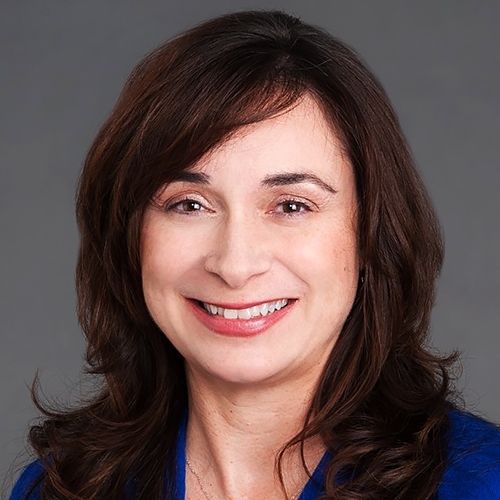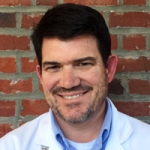 Antibiotic Use in the NICU Online Course(s) & Continuing Education
Antibiotic Use in the NICU Online Course(s) & Continuing Education
Access the latest clinical skills and research for Antibiotic Use in the NICU for NEONATOLOGY professional training. These Antibiotic Use in the NICU online courses provide practice-changing skills and valuable perspectives from leading global experts. This Antibiotic Use in the NICU education has been accredited for a variety of CEUs / CERPs and can be accessed on-demand, at your own pace.


Dr. Tinisha Lambeth is the Neonatal Quality Improvement Coordinator and an Assistant Professor of Pediatrics at Wake Forest School of Medicine. She coordinates quality improvement at Novant Health Forsyth Medical Center NICU as well. She is a Neonatal Nurse Practitioner and received her MSN (2004) & DNP (2014) from Duke University School of Nursing. Over the past 8 years, Tinisha has presented quality improvement work locally, nationally, & internationally. She has co-authored three publications, on the topics of cytomegalovirus, golden hour and the association of different feeding types with necrotizing enterocolitis and growth in premature infants.
Early- and late-onset sepsis is a significant cause of morbidity and mortality in neonates. However, prolonged antibiotic administration alters the microbiome and increases the risk of necrotizing enterocolitis, sepsis, and death in very low birth weight infants and in late preterm and term infants adverse effects include ototoxicity, nephrotoxicity, increased bacterial resistance, and unnecessary costs. Empiric antibiotic therapy for early-onset sepsis and routine Vancomycin usage for late-onset sepsis was a common practice for neonates at this neonatal intensive care unit. Also, antibiotic stewardship in early- and late-onset sepsis management in the NICU posed unique challenges due to variability in provider practices. In this presentation the Model for Improvement quality improvement methodology and three quality improvement projects with a global aim to reduce antibiotic usage will be presented.

View Details / Enroll

Antibiotics in the NICU: Practical Understanding of Bugs & Drugs

I have been working in the neonatal area for about 40 years. I received my BSN from Grand Valley State University in Grand Rapids, Michigan. I began working in the NICU right after graduation at Bronson Methodist Hospital in Kalamazoo, MI. I then moved to Detroit and worked at Henry Ford Hospital for 7 years as an RN, Perinatal Educator, Clinical Nurse Specialist, and NNP. I completed my MSN at Wayne State University. I was the first NNP in Michigan, and after leaving Henry Ford, I started working at St. Joseph’s Hospital in Ann Arbor. We moved to Arizona in 1985. I worked at St. Joseph’s Hospital & Medical Center in Phoenix and Banner Desert Medical Center in Mesa (including time at other Banner facilities at Baywood, Mesa Lutheran, and Thunderbird). I completed my PhD at the University of Arizona in Tucson in 2005, and moved to Omaha, NE to begin teaching in the NNP program at Creighton University. I have continued to work most weekends in the NICUs at Methodist Women’s Hospital, Creighton University Medical Center, Lakeside Hospital, and Bergan Mercy Medical Center (CHI Health). I love both teaching and the clinical aspects of the NNP role. I love working with students and helping them “get” the connection between physiology and the disease. I also get a “kick” out of attending deliveries, bagging infants, and intubating them!! I love that adrenaline rush! I also enjoy biking, reading a good novel, and enjoy roller blading (until I broke my leg 4 years ago). I have been pretty cautious with my roller skating since then. I have two sons – one in college and one who recently graduated from college and is working in downtown San Francisco. My husband and I love to travel (when I get time off) and have done some kayaking on the beautiful Nebraska lakes.
This talk will discuss the bacteria seen in the NICU and the groups of antibiotics that are used to treat them, differentiating between empiric therapy and directed therapy. The antibiotics covered will be penicillins, cephalosporins, aminoglycosides, macrolides, carbapenems and vancomycin. Antibiotic resistance patterms and possible new therapies will also be discussed.


Jim Thigpen has been a pediatric clinical pharmacist for 30 years and is currently an associate professor of pharmacy at East Tennessee State University Bill Gatton College of Pharmacy. When he began his training at MUSC in Charleston, SC, they were investigating Survanta and he has been witness to and a participant in the evolving world of neonatology since. He has spoken at several neonatal nursing conferences over the years and enjoys helping other practitioners learn about and apply pharmacotherapy in this special population.
Topic: Clinical Pain Management in the Neonate - [View Abstract]
Topic: Pharmacotherapy for Hemodynamic Instability in Neonates - [View Abstract]
When faced with a potential neonatal infection, it is critical to choose the correct antibiotic(s) for the situation. Considering the environment of antibiotic resistance and some of the limitations for antibiotic use in this fragile population, selecting the right drug, dose, interval and monitoring parameters can be life and death decisions. This presentation will help the learner understand the complexities of this problem and provide them with the tools to provide state-of-the-art medical care.







